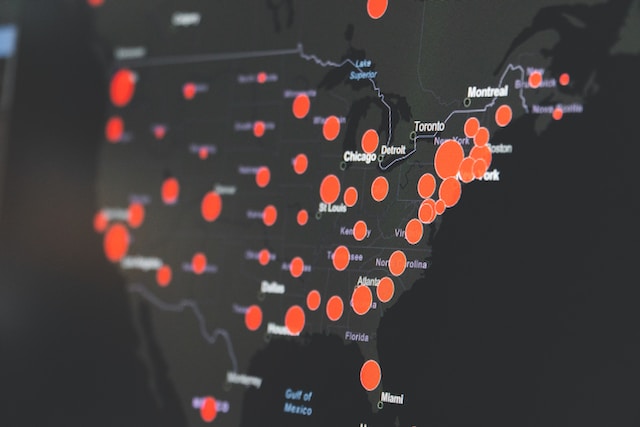When the Russian invasion started, Adriana Porowska, a Polish social worker, could hardly keep track of the flood of people signing up to volunteer to help Ukrainian refugees arriving in Warsaw.
But more than nine weeks into the war, that wave of volunteers is receding. She is having an increasingly difficult time finding people to fill volunteer shifts.
“There are no new people coming to join the volunteers, only leaving,” she said. Those who do sign up “have to do more work, and they are even more tired,” she said.
Sitting in a food tent outside a Warsaw train station on the Saturday before Easter, Porowska said she had hardly been home in the past two months. Her house was a mess. She was exhausted. And she hadn’t had time to prepare for the holiday.
“I just hope my husband doesn’t divorce me and my son doesn’t abandon me,” she joked. “But really, my hope is that the volunteers do not abandon me.”
As the war in Ukraine drags on with no immediate end in sight, Poland’s initial embrace of the refugees is starting to show signs of strain, as resources — including volunteers, housing, classroom space and jobs — are running thin.
Poland has taken in an estimated 2.9 million of the more than 5 million Ukrainians who have fled the country. Here in the capital city, the population has grown by roughly 15 percent since the war started.
Mayor Rafal Trzaskowski has warned that Warsaw is at “capacity” and unable to absorb another wave of refugees, which he worries could be coming as Russia changes its strategy to focus its attacks on the eastern part of Ukraine.
“Long term, we envision quite a lot of problems and it puts an enormous strain on the city,” he said in an interview with MSNBC on Tuesday. The mayor visited the United States to plead for more help from the international community and warn that “with the escalation in the east and with 7 million people displaced within Ukraine, we can expect another wave.”
Thousands of people in Poland mobilized at the start of the war to welcome Ukrainians into their own homes, but finding housing has since become more difficult. Polish families willing to host refugees have already filled up their spare rooms. The number of available apartment units for rent in Warsaw has diminished significantly and rental prices have increased by more than 30 percent since the end of February.
At first, an expo center on the outskirts of Warsaw — which was hastily transformed into a mass refugee shelter when the war started — served as a brief stop-off point for refugees to catch up on sleep and get a free hot meal. Many stayed at the center for one or two nights before traveling to a different country or finding accommodations in Poland better suited to a long-term stay.
But increasingly, the center has become home for people with nowhere else to go.
Alina Kushnir, 35, from Kropyvnytskyi in central Ukraine, has been living in the expo center since the beginning of March with her four children, her sister and her parents. They’ve been unable to find a Polish family willing to take in such a large family, and they’ve had little luck finding an apartment of their own. She said landlords keep rejecting her rental requests, telling her that her family is too large for the apartments that she can afford to rent.
“It’s difficult and uncomfortable,” she said about living in the expo center. “There’s too many people and no personal space.”
Employment has emerged as another major hurdle for some refugees, as they grapple with the reality that it could be a long time until they can return to their lives, their jobs and their support systems in Ukraine.
Source: Oman News Agency

